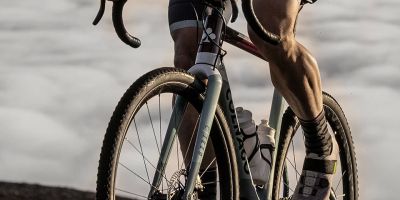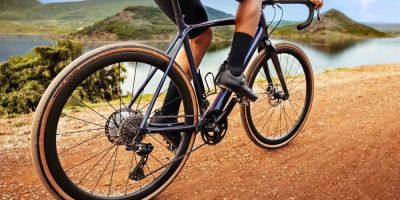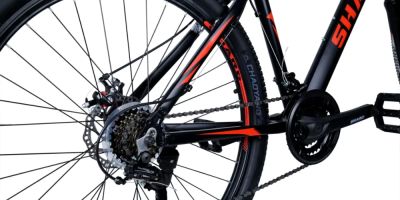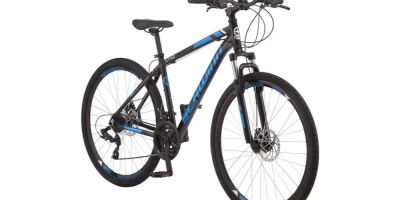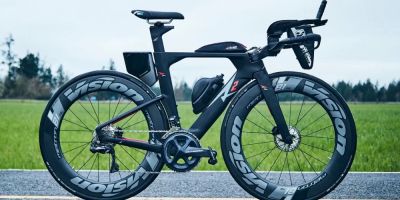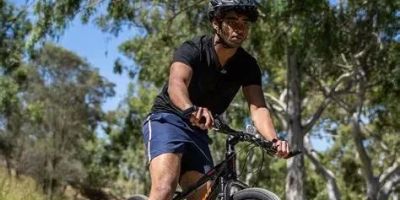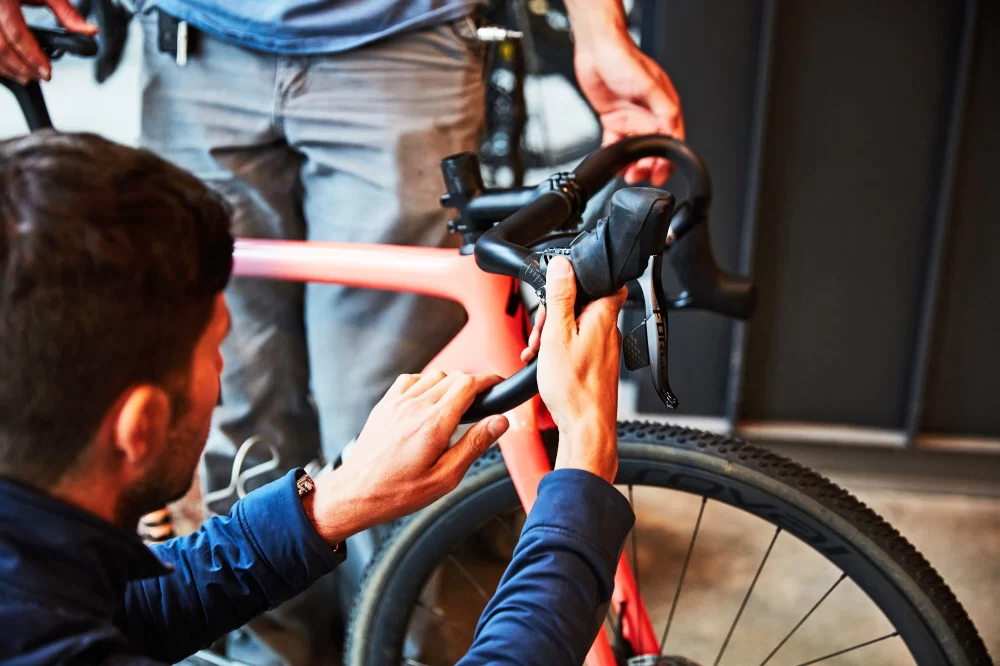
How to Make Cycling More Comfortable: Tips, Gear, and Adjustments
As a cyclist, one of the most important aspects of enjoying the sport is comfort. Whether you're cycling for fitness, commuting, or just enjoying the open road, the comfort level of your ride can make or break the experience. Over the years, I've learned that small changes in my setup, gear, and riding posture can make a huge difference. Here’s a guide on how to make cycling more comfortable and enjoyable, based on my own experiences and expert advice.

Trek Bicycle Happy Valley
9347 SE 82nd Ave, Happy Valley, OR 97086, USA
1. Adjusting Your Bike for Maximum Comfort
When I first started cycling, I didn’t realize how important it was to get the right fit on my bike. Many new cyclists make the mistake of thinking any bike will do, but comfort starts with proper adjustments. Here are some key aspects to focus on:

D'Aniello's Amity Bicycles
18 Selden St, Woodbridge, CT 06525, USA
Seat Height
The seat height is one of the most critical adjustments for comfort. If your seat is too low, you’ll find yourself pedaling inefficiently, which can cause discomfort in your knees and lower back. If the seat is too high, you’ll overextend your legs, leading to muscle fatigue and potential injury. A good rule of thumb is to set the seat height so that when your foot is at the bottom of the pedal stroke, your leg has a slight bend. I recommend getting a professional bike fitting if you're unsure, but even a few minor tweaks can make a world of difference.
Handlebar Position
Another key factor in comfort is the height and position of the handlebars. The handlebars should be at a level that feels natural for your upper body. If they are too low, you'll put unnecessary strain on your back and wrists, which can lead to discomfort over long rides. I’ve found that raising the handlebars just a bit made my rides feel less strenuous on my shoulders and wrists. The ideal position will vary depending on your riding style, but always aim for a relaxed posture to avoid pain.
Pedal and Cleat Position
Pedals and cleats play a significant role in how comfortable your ride is. Improper alignment of your pedals and cleats can lead to knee pain and discomfort. I learned the hard way after a few long rides that my cleats weren’t aligned properly, causing my knees to ache after just a short distance. A simple adjustment to the cleat position solved the problem. Make sure your cleats are positioned correctly, allowing for natural leg movement. Also, if you have the option, try different types of pedals, like clipless pedals, to improve your efficiency and comfort.
2. Choosing the Right Cycling Gear
The gear you wear when cycling can have a big impact on how comfortable your ride is. Over time, I’ve realized that investing in good cycling gear is worth every penny. Here are a few essentials that made my rides significantly more comfortable:
Comfortable Saddle
Your saddle, or seat, is one of the most important pieces of equipment. Many new cyclists make the mistake of assuming that a soft saddle will be more comfortable, but in reality, it’s about finding the right shape and fit for your body. After experimenting with different saddle types, I discovered that a firmer, more ergonomically designed saddle worked best for me. If you're experiencing saddle discomfort, try a few different models and consider getting a padded cover for extra cushioning. Don’t forget to adjust the angle of your saddle too—sometimes a slight tilt can make a huge difference.
Cycling Shorts and Padding
Another key to comfort is investing in a good pair of cycling shorts. These aren’t just any regular shorts—they are designed with padded inserts that provide extra cushioning for your sit bones. When I first started cycling, I tried using regular gym shorts, but they quickly became uncomfortable. Cycling shorts made a world of difference, especially on longer rides. Don’t skip this gear if you want to ride comfortably for hours on end!
Gloves and Hand Positioning
If you’ve ever experienced numbness or discomfort in your hands during a long ride, you know how frustrating it can be. Cycling gloves are an easy fix for this problem. They provide extra padding to reduce pressure on your hands and wrists. I’ve found that cycling gloves not only improve comfort but also provide better grip on the handlebars. If you’re prone to hand fatigue, consider padded gloves or bar tape with extra cushioning to enhance your ride.
3. Improving Your Cycling Posture
Your posture while cycling can have a significant impact on how comfortable your ride is. Poor posture can lead to back pain, neck pain, and even discomfort in your hands and wrists. Here’s what I’ve learned about cycling posture:
Maintain a Neutral Spine
One of the first things I learned was to keep my spine in a neutral position while riding. This prevents unnecessary strain on your back. Avoid arching your back or leaning too far forward, as this can cause tension and discomfort. By maintaining a neutral spine, you’ll reduce pressure on your lower back and ride more efficiently. Try to keep your shoulders relaxed and avoid hunching over—this simple adjustment can make a huge difference in comfort.
Elbow and Wrist Positioning
Keep your elbows slightly bent while cycling to reduce strain on your arms. If your arms are fully extended, it can cause unnecessary tension in your shoulders and elbows. A slight bend allows for better shock absorption and more relaxed riding. Also, your wrists should be in a natural position, not overly bent, to avoid discomfort. If you notice any tingling or numbness in your hands, it might be a sign that your wrist position needs adjustment.
4. Hydration and Nutrition for Comfort
Comfort isn’t just about your bike and gear—it’s also about taking care of your body. Staying properly hydrated and fueling your body with the right nutrients can make your rides much more enjoyable. I’ve learned the hard way that dehydration and hunger can quickly turn a pleasant ride into an uncomfortable experience. Here’s how to stay comfortable:
Hydrate Frequently
Dehydration can lead to muscle cramps and fatigue, which significantly impacts your comfort level while cycling. Make sure to drink plenty of water before, during, and after your ride. I like to carry a water bottle on my bike so I can sip frequently, especially on longer rides. On hot days, you might also want to bring along an electrolyte drink to replenish minerals lost through sweat.
Eat for Energy
Fueling up with the right foods before and during your ride can prevent fatigue and improve your comfort. I always make sure to have a small meal or snack before hitting the road, especially if I plan to ride for more than an hour. Bananas, energy bars, and nuts are all great options for maintaining your energy levels. If you’re riding for an extended period, bring snacks to munch on during breaks to keep your energy up.
5. Maintaining Your Bike for Comfort
Proper bike maintenance is often overlooked, but it plays a huge role in comfort. Over time, your bike’s components can wear down, leading to a rough and uncomfortable ride. Keeping your bike in good shape ensures that it functions smoothly and efficiently. Here are a few maintenance tips I’ve learned:
Check Tire Pressure
Under-inflated tires can lead to a bumpy ride, while over-inflated tires can make the ride uncomfortable and reduce traction. I check my tire pressure before every ride to ensure it’s at the optimal level. The correct pressure will depend on your weight, the type of bike you have, and the terrain you’re riding on, but generally, tires should feel firm but not rock-hard. Check your manufacturer’s guidelines for the recommended pressure.
Lubricate the Chain
A dry, rusty chain can make pedaling feel much harder than it needs to be. Regularly lubricating the chain and other moving parts of your bike will make your ride smoother and more efficient. A well-maintained bike reduces strain on your body and ensures that your ride stays comfortable for longer periods.
Making cycling more comfortable doesn’t have to be a complicated task. With the right adjustments, gear, and posture, you can improve your comfort and enjoy the ride. Remember that every cyclist is different, so take the time to find what works best for you. Happy cycling!

